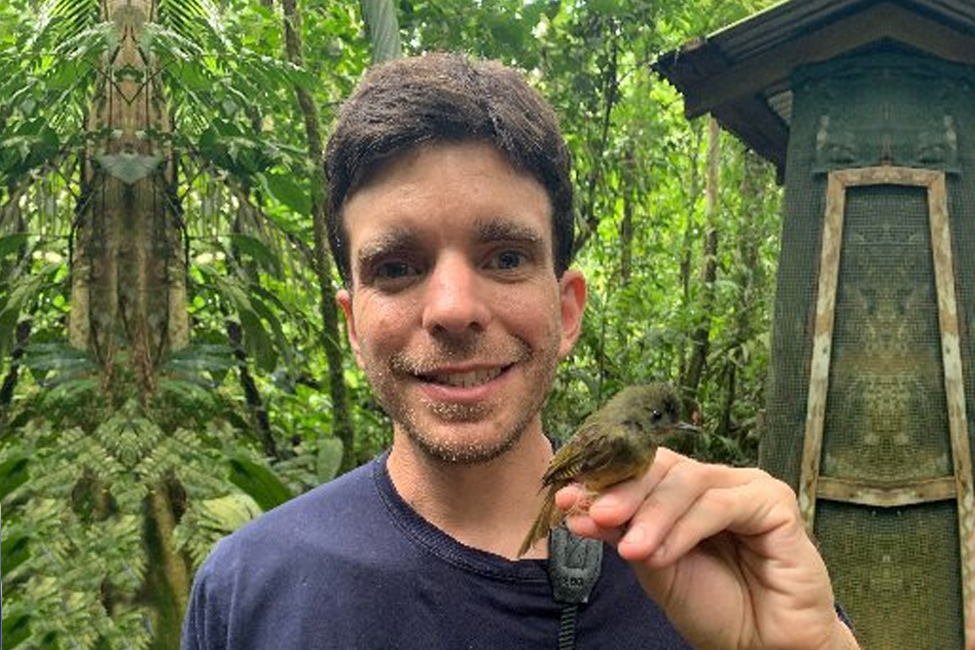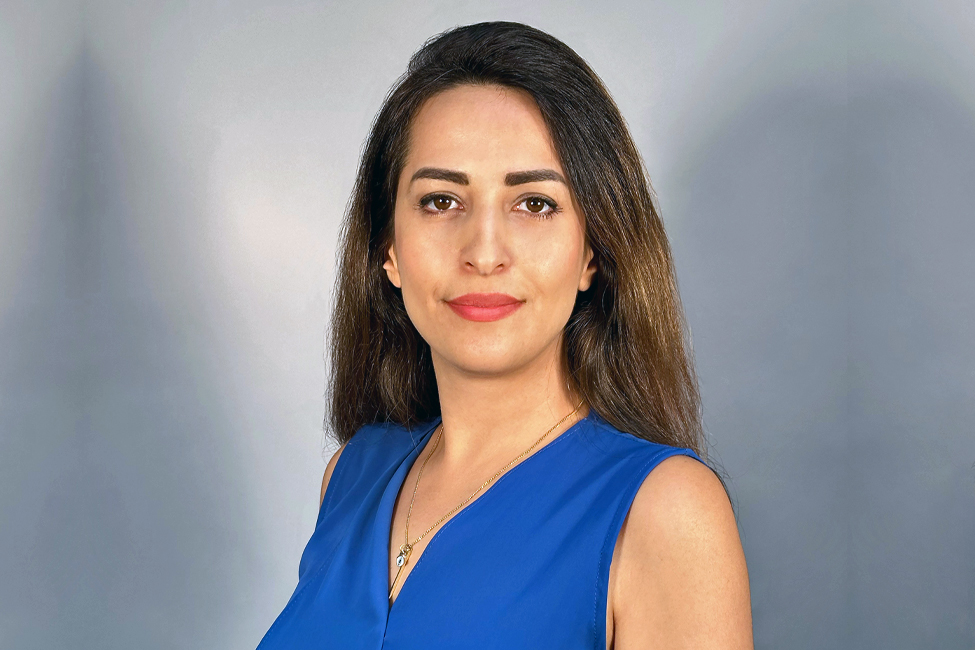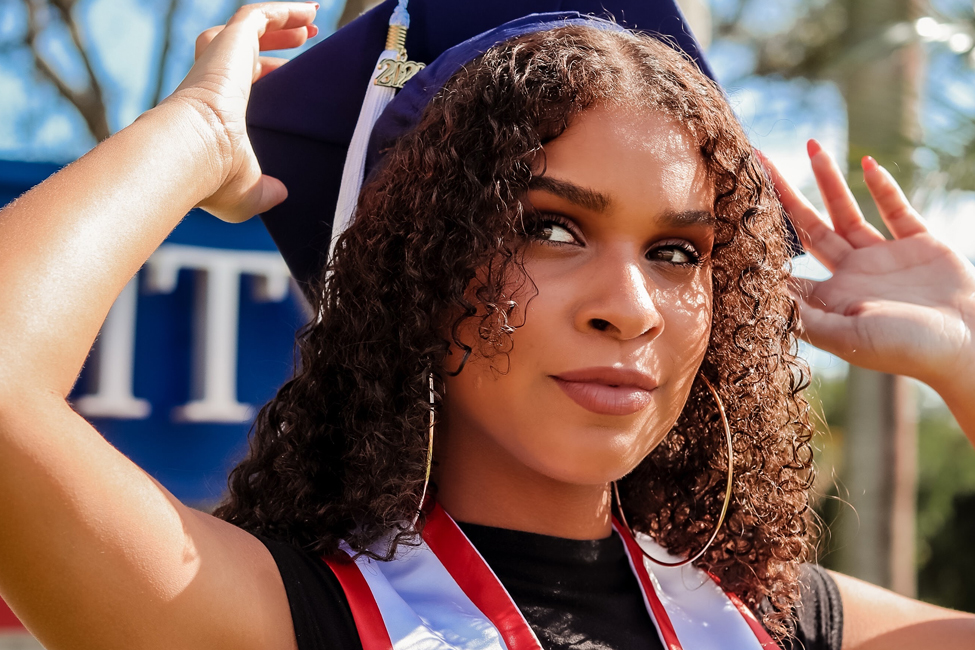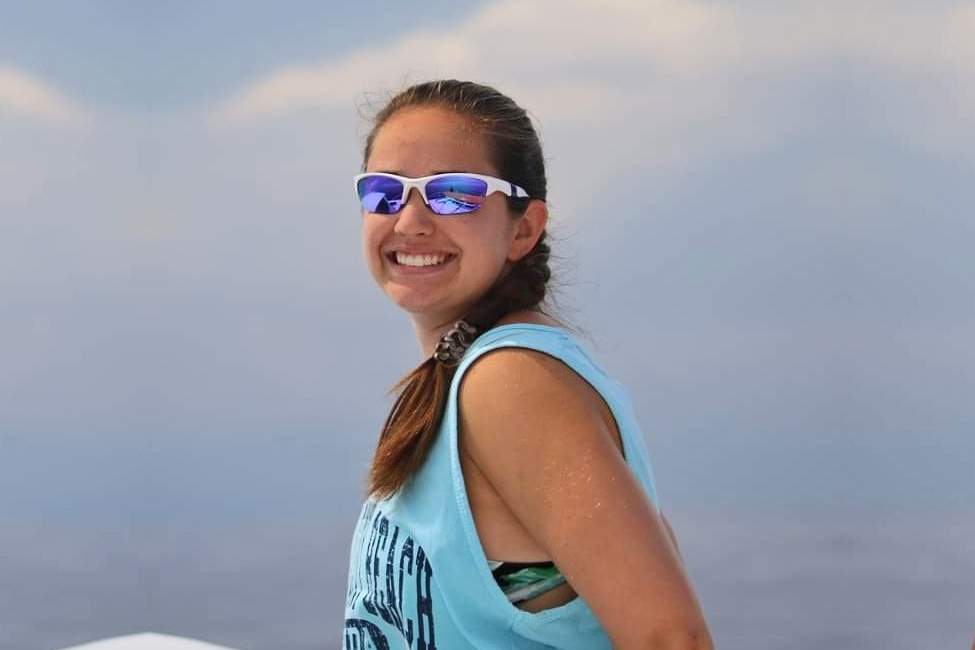Hans Gonzembach
Monday, Apr 01, 2024
Hans Gonzembach is an avid outdoorsman with a passionate interest in birds. As a PhD candidate in Florida Atlantic’s doctoral program studying integrated biology, he’s discovering how to merge his hobby and future career. Now, he conducts various research initiatives while holding a teaching assistant position for a life science labs class at FAU.
Hans originally started his academic career specializing in environmental science while studying in Massachusetts. He was on track to obtain a Master of Science and Biology degree when he applied for FAU’s PhD program. He credits the Master’s Along the Way program for making the transition easy. This program, also known as a Master’s en Passant, allows students to earn their master’s "along the way" (MALW) to their doctorate in select graduate programs.
During his undergrad studies, Hans was able to participate in a research program in Costa Rica with a Cornell trained post-doctoral scholar, who studies bird songs and cultural evolution. It was a moment that really propelled him into studying animal communication through bird songs.
"Seeing him in his environment and the passion he had really motivated me," Hans said. "It inspired me to conduct my own research."
Hans’ dissertation is multifaceted. The first part of his research focuses on how the environment shapes songbird sounds. For example, each individual Bachman’s sparrow sings around 50 different song types. They learn these songs by listening to adults nearby during their development. Juveniles will hear other adults singing and they will practice and memorize songs until they get it right – very similar to how humans learn to speak. A lot of these songs are shared within their population.
"It’s called the sensorimotor stage of song learning," Hans explains. "It starts with babbling (random notes that are all jumbled together), then later develops into songs (similar, but not perfected). Then, they finally get it right. After that, they just repeat them."
Hans explained that some species of songbirds only have a few months to learn their songs. Preliminary data suggests that the environment might influence which types of songs they sing as well, such as how far the soundwaves travel and the impact of different parts of the environment. With this data, he believes that some song types are shared more because they are heard more often. Other song type don’t travel far because of environment factors. These aren’t as common. But time (and more research) will tell.
The second half of Hans dissertation focuses on a different category of song that some species of songbirds sing, called complex song. Not all birds sing it, so Hans is researching the social function of this song. Why do they sing it? Is it used during mating season to attract females – or as a male-to-male aggressive interaction? His first approach is to compare how similar they are between individuals and if each individual sings it the same way each time.
"I love going out in the field to collect data. Being outside, catching birds and recording their sounds. The hands-on experience is the best part." Hans said. "And then going out to network with other researchers where I can discuss my research is a lot of fun."
In fact, networking is one of the things that Hans likes most about Florida Atlantic. That and the school spirit! You can catch him attending lectures and social events where students and faculty can come together and discuss research. He also says it’s a great way to find researchers that you can collaborate with.
Perhaps his favorite event to participate in is the Broward Student Research Symposium, which empowers student researchers to share their research projects and artistic works with faculty, peers, and the local community. Hans has been presenting his research at the Broward Student Research Symposium since 2020.
"There’s a lot of cool work that people are doing." Hans said. "When you’re focused on your own research you are stuck behind the desk, and this is a great way to get out and clear your head."
Hans is expected to graduate in the spring of 2026. Looking back on his academic career, he feels a great sense of pride. Hans described himself as a "below average" student in middle and high school. He was disengaged and struggled to find motivation. So much so, that he took a year off his first year in college.
"I didn’t know what I wanted to do. I jumped around in different jobs trying to see what I really enjoyed," Hans said. "I worked as a baker for a bit. Then I took care of children with disabilities. And then I found a position at a science museum. That’s where I fell in love with ecology and wildlife research. I knew I wanted something in biology."
What Hans soon found out, was that you needed a higher education degree to get those jobs. So, he headed back to school, but this time he was goal driven. When he graduated with his bachelor’s degree, he realized that he was in fact capable, smart, driven and motivated (all the things he doubted about himself before). He found his niche in the professional world, and it was a powerful feeling. And as cliché as it sounds, he believes that if you challenge yourself and work hard enough, you can prove it to yourself and you can do anything.
Hans knows that when it comes to finding work, the world of research is a very competitive field. He’d love to find a job working for a state or federal wildlife agency or zoo/aquarium in projects that work on recovery plans for declining species of birds. But he also wouldn’t mind teaching. Wherever his career takes him, there’s one thing that is for certain – he’ll continue pushing himself to learn and explore the world of research.
"It feels great when you see your hard work paying off. Anyone who is struggling to find their way, just know that it can be done. You can overcome anything you put your mind to," Hans said.


